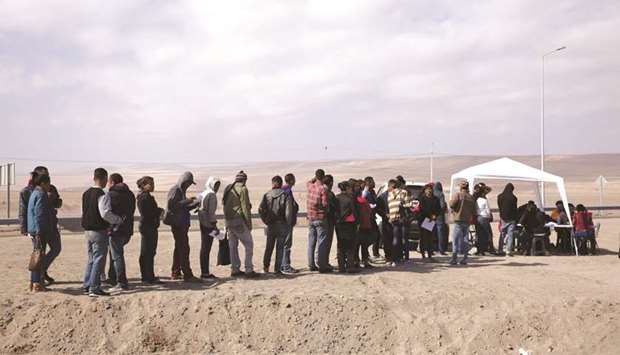Venezuela’s former intelligence chief, Cristopher Figuera, is in the US, “a free man,” a senior US official confirmed yesterday, holding him out as an example for others prepared to turn against President Nicolas Maduro.
Figuera, who surfaced in an interview with the Washington Post after nearly two months in hiding, fled Venezuela after the collapse of an April 30 military uprising that he helped organise against Maduro.
“I’m proud of what I did,” Figuera told the Post. “For now, the regime has gotten ahead of us. But that can quickly change.”
The highest-profile defector against the Maduro regime, the Cuban-trained Figuera served as a security chief of the late Hugo Chavez and was elevated in October to chief of Maduro’s feared intelligence service — the Sebin.
“He’s not under detention. He’s in the US and, you know, a free man,” said Elliott Abrams, the Trump administration’s pointman on Venezuela.
“I would like to talk to him myself. I assume other officials would like to because he quite obviously, as we can see from his position and we can see from the Post, he has a lot of interesting things to say about the Maduro regime and life in Venezuela,” Abrams told reporters at the state department.
Figuera said members of Maduro’s family and his government were engaged in money laundering and corruption.
“I quickly realised that Maduro is the head of a criminal enterprise, with his own family involved,” he said, accusing the president’s son, Nicolas Maduro Guerra, of running an illicit scheme involving the sale of gold at high prices to Venezuela’s central bank.
He also claimed that Maduro was protected by a Cuban security team and took frequent phone calls from former president Raul Castro.
“Raul Castro was like an adviser for Maduro,” Figuera said. “If he was in any meeting, it would be interrupted if Castro was on the phone.”
His claims could not be independently verified, the Post said.
Recruited by the opposition, Figuera turned against his boss in a plot that quickly fell apart when his co-conspirators — Venezuelan Defence Minister General Vladimir Padrino and Supreme Court chief justice Maikel Moreno — got cold feet, he told the Post.
The 55-year-old hid out in Colombia until arriving in the US on Monday, according to the Post.
His current whereabouts have not been disclosed, but Abrams said he was not in Washington and the US government did not bring him into the country.
Abrams held out Figueres as both a propaganda boost for the opposition and an example to follow for others in Maduro regime — many of them under US sanctions.
“He can go wherever he wants. He is not under sanctions, when he left the regime we took the sanctions off, so that’s a sign to other officials as what their future might be if they do the same thing,” he said.
Abrams dismissed as “laughable” the notion that Maduro might remain as president to preside over elections and a democratic transition.
“The barrier to a peaceful resolution remains Maduro’s refusal to step aside,” he said.
Reasserting control, the Maduro regime has stepped up arrests of opposition lawmakers since the coup attempt while holding talks in Norway with representatives of opposition leader Juan Guaido.
Last week, Maduro hosted a visit by UN human rights chief Michelle Bachelet, who is due to issue a report next on month on conditions in Venezuela.
But Abrams argued that the Venezuelan president remains vulnerable, and so fearful of another coup attempt that he would not permit a big military parade that normally would have been held Monday but wasn’t.
“So we can’t predict the future. I can only say it seems if you ask Maduro his fears of another coup are not over,” he said.

Venezuelan citizens line up at the Chacalluta border crossing between Chile and Peru, in Arica, Chile.
